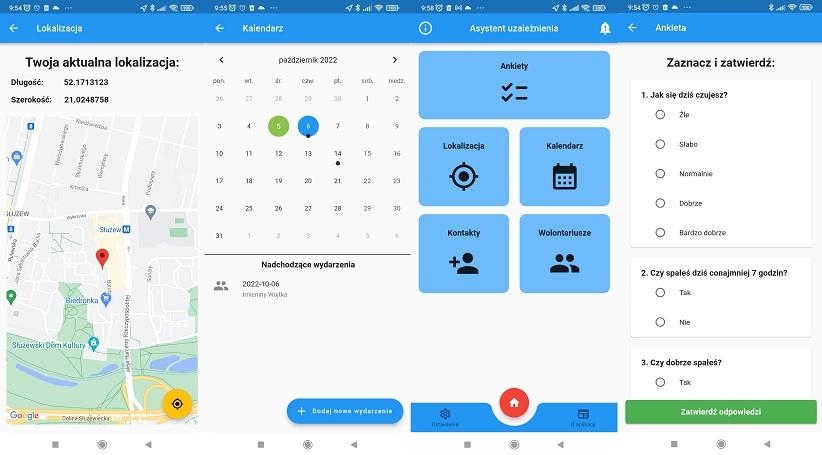Application to help battle alcohol addiction
WUT scientists are working on a mobile app that will support alcohol abuse therapy. The project is implemented as part of the SzIR-3 competition for research grants.
Current information and communication solutions, especially those based on mobile solutions, are so highly technologically advanced that they facilitate remote contact with a doctor and the continuation of treatment between face-to-face appointments. WUT scientists have decided to use their technological possibilities and experience in this area to support those in need.
“The idea of creating a mobile app supporting alcohol abuse therapy came to us during the collaboration with the Institute of Psychiatry and Neurology in Warsaw on a different project,” says Krzysztof Perlicki, PhD, DSc, Associate Professor at the Faculty of Electronics and Information Technology of WUT. “When we took a deeper look at the issue, it turned out that alcohol abuse was a huge social problem and access to therapy was difficult,” he says.
Mobile apps that are already known in the market offer support in staying sober through motivation, control of well-being, meditation and convincing patients into writing a journal of feelings. The problem with such solutions is that they are based on interaction with a patient only, who must be highly determined to overcome the addiction. The concept developed by WUT researchers assumes interaction with another human.
“Once a week patients complete a survey which aims to define which factors threatening or supporting therapy have affected their mental well-being,” says Professor Perlicki.
Based on the collected data, the application using a machine learning algorithm based on a neural network facilitates defining situations which threaten the therapy, e.g. places.
“Patients mark high-risk spots on the map themselves, for example, shops or a friend’s house. Any time patients get close to such a spot, the app will be aware of the threat. Events such as a family birthday party might be high-risk, too. Contact with certain people is also dangerous. That is why the patient also defines high-risk contacts through phone numbers,” says Professor Perlicki.
A mix of poor mental state indicated in the survey with a threat activates a social network, which is a collection of contacts previously defined by the patient. It might be the therapist’s, wife’s or AA friend’s number. The application will automatically connect patients with numbers previously defined by them – in accordance with the established hierarchy. Adding the geolocation data to the social network is also planned, to help the patient meet face-to-face a person from their network who is the nearest to them.
“Such a solution was introduced after talking to people in therapy and therapists. Both groups convinced us that the most important thing in treatment was contact with another human being. No meditation and no motivational formulas can replace it. Patients must contact someone to talk. This is how AA meetings work. We are using the same mechanism, which means we are creating an information and communication mechanism, but its outcome is a conversation with another human being,” explains Professor Perlicki.
The application is ready for testing. Tests are planned for November this year and will be conducted in one of the Mazovian centres for addiction treatment.
“In my work, I have implemented various scientific projects. Now, I would like to do something that could be of help to another human being,” says Professor Perlicki.
-
The project “Mobile based quasi-autonomous information and communication system for alcohol abuse therapy”[GD1] is funded within the grant of the Research Centre POB Artificial Intelligence and Robotics under the Excellence Initiative – Research University programme implemented at the Warsaw University of Technology.
Research team:
Krzysztof Perlicki, PhD, DSc, Associate Professor; Marek Stawowy, DSc; Tomasz Mrozek, DSc.


